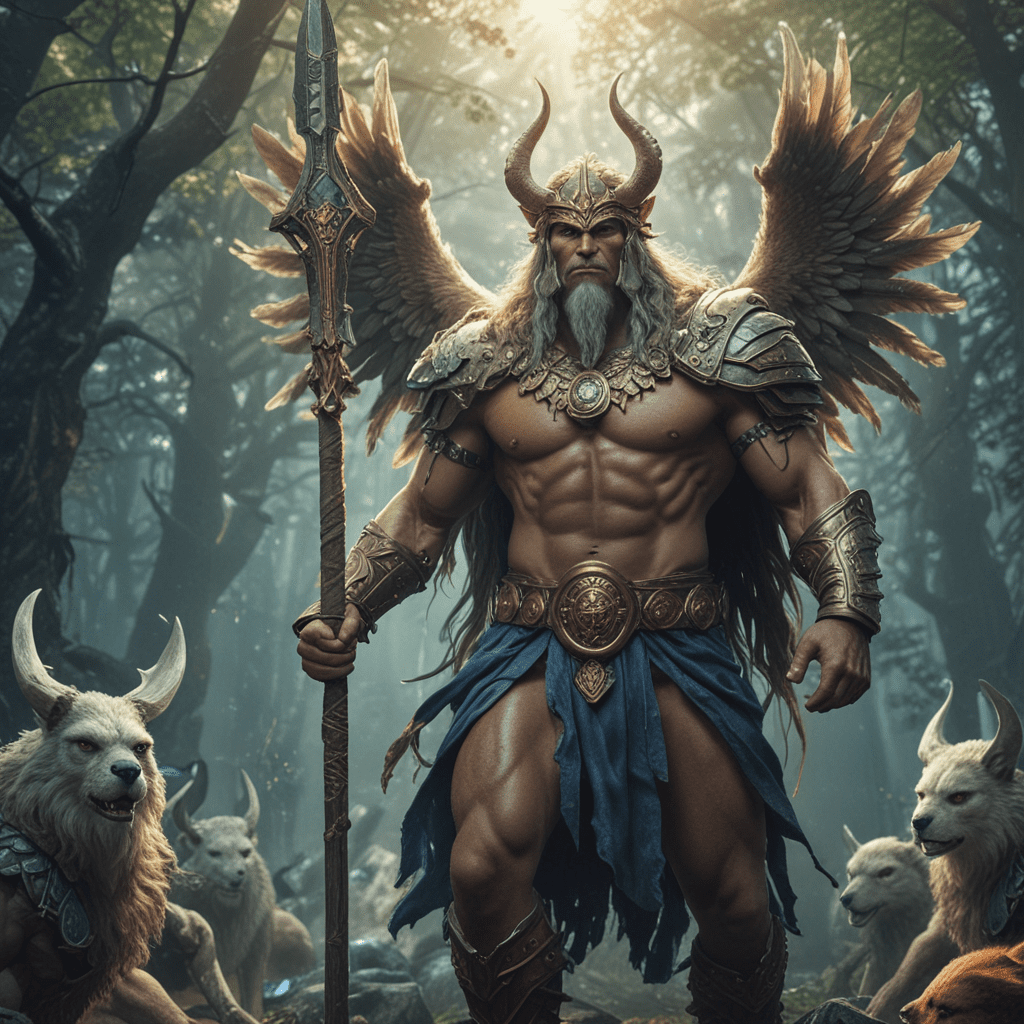The Concept of Knowledge and Wisdom in Norse Mythology
The Importance of Knowledge and Wisdom in Norse Mythology
In Norse mythology, knowledge and wisdom were highly valued attributes that shaped the lives and destinies of both gods and mortals. The chief god Odin, known as the All-Father, was renowned for his pursuit of wisdom. He sacrificed his own eye in exchange for a drink from Mimir’s Well, which granted him immense knowledge of the past, present, and future. Odin’s wisdom allowed him to make strategic decisions and navigate the complexities of the cosmos.
The Sources of Knowledge and Wisdom in Norse Mythology
One of the most iconic symbols of knowledge in Norse mythology is Yggdrasil, the World Tree. Its three roots stretched into different realms: Asgard (home of the gods), Jotunheim (realm of the giants), and Helheim (realm of the dead). The Well of Urd, located beneath one of Yggdrasil’s roots, contained the pool where the Norns, the fates of Norse mythology, resided. These divine beings controlled the destiny of every being in the cosmos, emphasizing the interconnectedness of knowledge, fate, and wisdom in Norse beliefs.
The Search for Wisdom: Odin and the Runes
Odin’s relentless thirst for wisdom led him to discover the secrets of the runes, a powerful form of magic and communication. According to the myth, Odin hung himself from Yggdrasil for nine days and nights, pierced by his own spear, to gain insight into the runic alphabet. This act of self-sacrifice granted him divine knowledge of the hidden meanings and powers of the runes. As such, the runes became symbols of wisdom, magic, and guidance in Norse culture.
The Legacy of Knowledge and Wisdom in Norse Culture
The pursuit of knowledge and wisdom in Norse mythology transcended the realms of gods and mortals, influencing all aspects of Norse culture and society. Skalds, or poets, played a vital role in preserving and transmitting ancient stories, myths, and wisdom through oral tradition. The possession of knowledge and wisdom was a source of power and authority, guiding individuals in making important decisions and navigating the complexities of the world.
In conclusion, the concept of knowledge and wisdom in Norse mythology served as a guiding light, shaping the beliefs, actions, and values of the gods and mortals in the intricate tapestry of Norse culture and mythology. Embracing the lessons of Odin’s pursuit of knowledge and the secrets of the runes reminds us of the timeless importance of seeking wisdom and understanding in our own lives.
FAQ: The Concept of Knowledge and Wisdom in Norse Mythology
What is the significance of knowledge and wisdom in Norse mythology?
In Norse mythology, knowledge and wisdom are highly valued traits that are associated with gods such as Odin, the Allfather. Knowledge is seen as a source of power and insight, often gained through sacrifices and trials. Wisdom is seen as the ability to make sound judgments and decisions based on knowledge and experience.
How is knowledge personified in Norse mythology?
Knowledge is personified in Norse mythology through Odin, the god of wisdom, knowledge, and poetry. Odin is known for sacrificing his eye at the Well of Mimir to gain knowledge and wisdom. He is also associated with the ravens Huginn and Muninn, who bring him information from all realms.
What role does wisdom play in Norse mythology?
Wisdom plays a crucial role in Norse mythology as it guides the gods and humans in making important decisions and facing challenges. The ability to apply knowledge wisely is often seen as a mark of a true hero or leader in Norse tales.
How is the pursuit of knowledge depicted in Norse myths?
The pursuit of knowledge in Norse myths is often portrayed as a journey filled with tests, trials, and sacrifices. Characters who seek knowledge are required to show dedication, courage, and often make personal sacrifices to gain the wisdom they seek.


